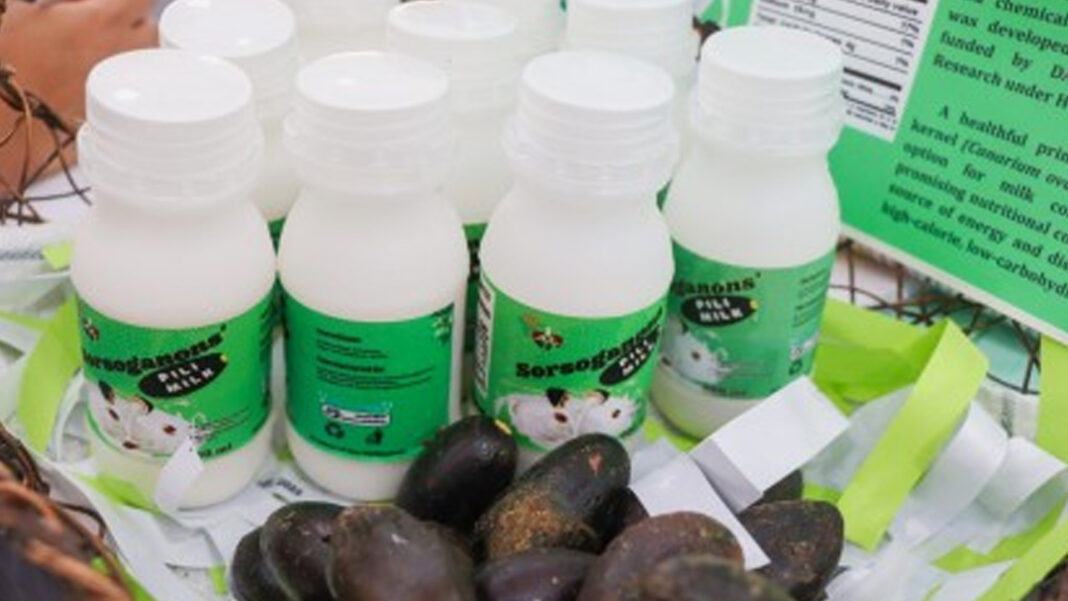The Department of Agriculture (DA) expects increased demand for raw pili in Bicol after introducing a new milk product made out of the nuts that are endemic to the Philippines, particularly in the region.
In an interview on Tuesday, Lovella Guarin, DA Bicol spokesperson, said they are preparing interventions for the different farmers’ cooperatives and associations (FCAs) in Sorsogon province that are potential adopters of the pili milk technology for commercialization.
“DA is very much ready to help our FCAs that will take the pili milk technology commercialization. From capability building, loans from Agricultural Credit Policy Council (ACPC) for the acquisitions of the processing facility and by providing grafted pili tree seedlings to pili farmers as a flagship commodity under the High-Value Crops Development Program,” Guarin said.
She said due to the pili nut’s promising nutritional composition, the researchers of the DA–Sorsogon Dairy Production and Technology Center (SDPTC) led by its superintendent Pedro Oliver, developed a plant-based milk alternative from pili nut kernel.
“The study started in March 2022 and was funded with over PHP1 million by the Bureau of Agricultural Research (BAR). After almost two years of study, the DA Bicol launched Sorsoganon’s Pili Milk at SM City Sorsogon on Feb. 21, 2024. The initial pili milk product launched was in 100 ml bottle which was given free to the attendees for further sensory evaluation,” she said.
Guarin said the project was conceptualized with the support of the Sorsogon Provincial Pili Development Board, which aims for the province to be declared as the Pili Capital of the Philippines.
“The Pili Milk is not yet available to the general market, but with the launching and partnership with other government agencies and stakeholders, we are optimistic that sooner, it will be out as another source of vitamins and nutritional drinks,” she said.
Based on DA-Bicol’s data, some 13,435 farmers are growing pili in some 142,405 hectares of plantation in the Bicol region.
Pili (Canarium ovatum) is considered a majestic tree because of its many uses –from pili candies to oil-based beauty products as well as pharmaceutical products.
According to studies, pili nuts are also loaded with monounsaturated fats, a beneficial form of fat that can help reduce levels of bad cholesterol, thereby preventing the build-up of plaque in the arteries.
Guarin also urged farmers to plant more pili trees to satisfy the growing demand for pili nuts among local processors and importers from foreign countries. (PNA)



